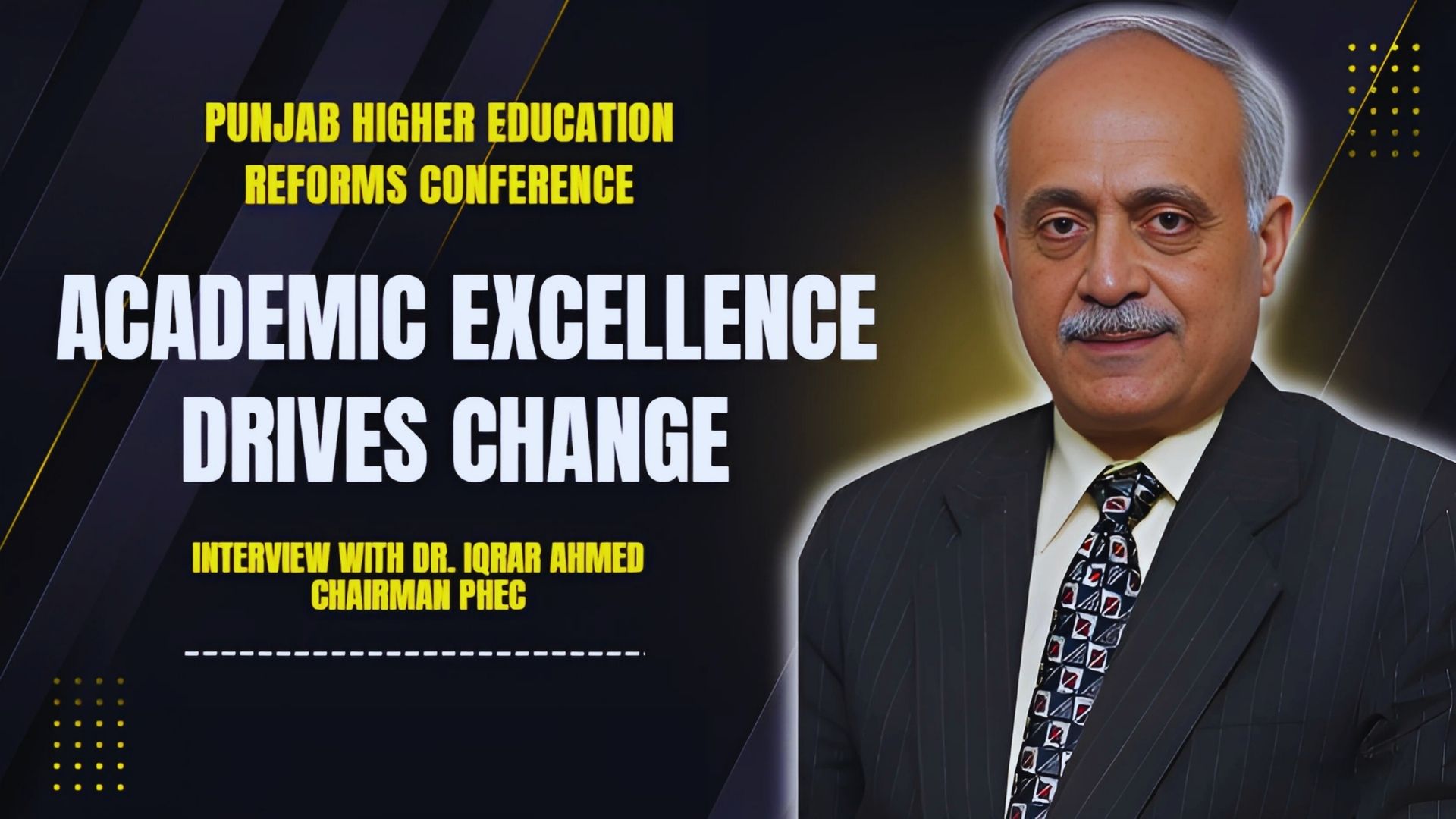By Saleem Mubarak
LAHORE–The Punjab Higher Education Commission is set to host the landmark Higher Education Reforms Conference 2025 here in Lahore.
The event will bring together top academics, policymakers, and global experts to chart a new course for academic excellence, research, financial sustainability, and good governance.
The day-long conference, titled “Punjab Higher Education Reforms Vice Chancellors’ Conference 2025” is scheduled for August 30 at Faletti’s Hotel.
Talking to Grandlines, Chairman of the Punjab Higher Education Commission (PHEC), Dr. Iqrar Ahmed, said the event will cover multiple sessions on Academic Excellence, Quality Assurance, Research, Financial Sustainability, and Good Governance.
He said that Prof. Ahsan Iqbal, Federal Minister for Planning, Development and Special Initiatives, will be the chief guest, while the Punjab Minister for Higher Education will address the concluding session of the conference.
Challenges Facing Pakistani Universities
Currently, he said, universities in Pakistan are facing an uphill battle in meeting international academic benchmarks while keeping pace with national priorities, including economic diversification, industrial modernization, and social development.
Sensing the writing on the wall, he emphasized that we must be placed on advancing high-impact disciplines, fostering interdisciplinary research clusters, promoting industry-linked innovation hubs, and aiming for a two-fold increase in international publications by 2029.
He said that through entrepreneurship, patent generation, and ISO/PNAC-certified research facilities, universities will not only contribute to the knowledge economy but also drive societal change.
He said that the ability of universities to deliver high-quality teaching and impactful research makes or breaks their relevance and sustainability. With technological advancements sweeping through every segment of society, including labour market demands, universities must adapt or risk falling behind, he added.
Reimagining Teaching and Research Models
At the conference, he said the experts would be tasked with finding ways for universities in Pakistan to reimagine their teaching and research models so they can hold their own in the fast-changing global knowledge economy.
He added that it’s time to get down to brass tacks and identify systemic changes needed to make interdisciplinary collaboration a standard practice rather than the exception.
Balancing Academic Freedom and Socio-Economic Realities
He emphasized that universities must also strike the right balance between academic freedom and Pakistan’s socio-economic realities. Besides, he noted that the conference would explore what structural incentives could kick-start Pakistan’s research ecosystem.
Similarly, he said that participants would discuss which governance or funding reforms could speed up the commercializing of university research outputs at scale.
Developing Ethical and Practical Graduates
He said that we must mold graduates who can hold their own both ethically and practically, ready to tackle emerging challenges. He added that the focus should be on raising the bar of university education rather than counting heads.
Dr. Ahmed said that we need to focus on quality assurance frameworks to address the diversity of institutional capacity and the uniformity required for global recognition. He emphasized that universities must strike the right balance by institutionalizing data-driven decision-making in quality enhancement without getting bogged down in bureaucratic hurdles.
“No university is an island today; institutions must leverage quality metrics to boost global rankings and attract international partnerships. Similarly, we need to work on creating a unified national dashboard for quality and performance that fosters both transparency and competitiveness,” he remarked.

